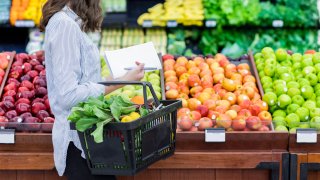
Recent price spikes for food and gas have caught the attention of consumers, as well as analysts — who warn that the pain of higher prices will hit the most vulnerable populations hardest of all, NBC News reports.
The reasons behind the increases are myriad but generally can be traced back to one or more consequences of the pandemic: Logjams in the world’s supply chain are one culprit.
Pandemic-related production roadblocks also are contributing to rising prices for food and oil. Agricultural production is dependent on weather, and climate change has contributed to more extreme storms and changing weather patterns that impact planting timelines and crop yields. Food production in the U.S. also relies on a highly mobile army of laborers, whose low pay and crowded working conditions make them uniquely vulnerable to COVID-19 — a combination of circumstances that have crimped production and raised costs for food producers, said Phil Lempert, founder of SupermarketGuru.com. The combination of production bottlenecks and demand spikes have culminated in higher prices, especially for meat, he said.
Consumer Price Index data for the month of January found that the cost of food eaten at home rose 3.7 percent from a year ago — more than double the 1.4 percent year-over-year increase in the prices of all goods included in the C.P.I.
Get Tri-state area news and weather forecasts to your inbox. Sign up for NBC New York newsletters.

